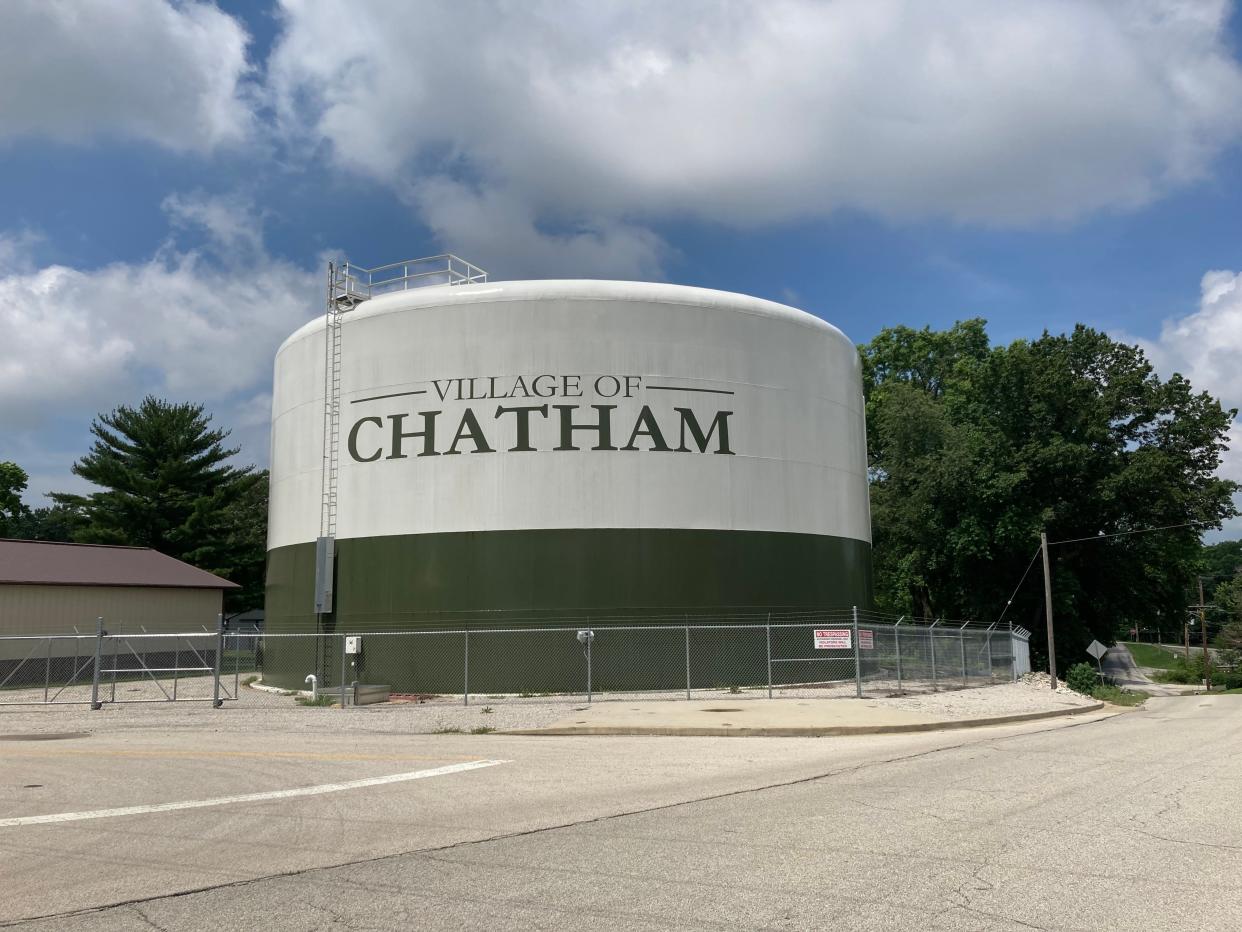Mayors, municipal leaders call for restored share of state income tax

An effort years in the making, municipal leaders from across Illinois touched down in Springfield this week to advocate for changes in how local government is funded by the state.
Dozens of mayors and village presidents requested the next state budget increase the share they receive through the Local Government Distributive Fund during a House Cities and Villages Committee subject matter hearing on Tuesday.
LGDF provides funds to municipalities annually through a portion of total income tax collections being dedicated to them. That portion was 10% following the inclusion of a state income tax in 1969 until 2011, when the share dropped to 6%.
The reduction came at a time of a temporary income tax rate increase in the state and, while the shares have increased slightly in the years since, have never returned to the original standard. In the current fiscal year, local governments hold a share of 6.16% of individual income tax collections and 6.845% of corporate income tax collections.
Rockford Mayor Tom McNamara told the committee the reduction has cost his city of 140,000 residents approximately $121 million over the past 11 years. This more than $10 million per year loss has been felt especially due to unfunded mandates being passed onto local governments by the Illinois General Assembly, he said.
"That's double the amount of money that we spend on every single year," McNamara said. "Ten million dollars would cover our entire street maintenance division, which fills potholes, does tree trimming, does all of the city of Rockford's right-of-way maintenance."
While local governments do rely on LGDF, other new sources have been created in recent years including the adult-use cannabis tax. A record-breaking 2022 fiscal year for cannabis sales saw disbursements to local governments grow to $146.2 million, up more than 75% from the prior year.
Still, not all municipalities receive disbursements through recreational marijuana.
Chatham voters turned down the opportunity for businesses to sell cannabis in the village earlier this month. Village president Dave Kimsey previously told The State Journal-Register the 3% Municipal Cannabis Retailers’ Occupation Tax would bring-in approximately $200,000 to the village.
Election: Cannabis, electric aggregation questions fail; township questions pass
Through LGDF, Kimsey said Chatham receives approximately $1.3 million annually through the fund- making up a quarter of its general fund.
The exact amount Chatham and other local governments receive varies due to income tax amounts collected differing each year. A return to the former 10% standard or even 8%, as past legislation has attempted, would be supported by Kimsey.
Unlike grants, money from the LGDF has no stipulations as to how local governments can spend that money. Kimsey said the village uses its funding to support its local police, parks, administrative costs and street repairs.
"We get to make the very hyperlocal based decision on how it's used, as opposed to a lot of the funding that we seek which is grant based," he said in a Tuesday phone interview, calling LGDF a "more efficient" funding source than grants.
Asked whether he would support an increase to LGDF, the office of Gov. JB Pritzker pointed to increased investment made into local governments during his tenure - notably the more than a billion dollars in revenues from internet sales, motor fuel and video gaming taxes.
Allocations to the fund have also increased from $1.7 billion in FY 2018 to a requested $2.7 billion in FY 2024 due to a state-share increase, bringing in $27 million into LGDF per year, and closing of business loopholes.
"Supporting the operation of local governments is a key part of the state’s financial infrastructure," Pritzker spokesperson Alex Gough said in an email. "Since Governor Pritzker took office, over $1.1 billion annually has been allocated to local governments to assist with costs over and above what they were previously receiving from the state. This is on top of the 49% increase in revenue sharing to local governments over Governor Pritzker’s first term."
Pritzker's budget proposal, now being crafted by state lawmakers, forecasts corporate income tax in FY 2024 will bring $408 million and $1.6 billion from individual income tax into LGDF. It also proposes a $600 million appropriation into the fund - the same amount he has requested in the last three state budgets.
The fiscal year 2022 budget avoided a 10% cut suggested by the governor earlier that year in the share of the state income tax funneled to municipalities and transit districts in the fiscal year.
Several municipal leaders also expressed support for House Bill 1116 from state Rep. Anthony DeLuca, D-Chicago Heights, that would gradually restore the share local governments receive through fiscal year 2027. A former mayor, DeLuca was referred to by fellow committee members as a long-known advocate for LGDF.
"When local governments are shortchanged, which are consistently faced with unfunded mandates from Springfield, costs are more likely to be passed on to the taxpayers," he said.
DeLuca's bill follows up on past attempts in the legislature that received bipartisan support in terms of co-sponsors, but never made it to a vote.
Chicago Mayor-elect Brandon expressed his backing for expanded LGDF during a joint Illinois General Assembly session on Wednesday.
"By increasing funding, this body can help Chicago and cities and towns across the state with the resources that are needed to build from the ground up," he said in the House chambers.
Contact Patrick Keck: 312-549-9340, pkeck@gannett.com, twitter.com/@pkeckreporter.
This article originally appeared on State Journal-Register: Mayors, municipal leaders call for restored share of state income tax

